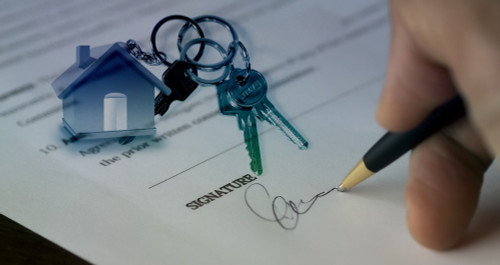27th Dec 2021
What Is a Deed and Why Does It Matter?
If you're wondering, "What is a deed?" look no further. Understanding deeds are crucial for property transfers. Be prepared with the right supplies here!
If you want to buy property, you will need to know what is a deed. A property deed is a legal document that is required to transfer property.
During this process, the grantor or seller transfers their ownership of property to the buyer, who is the guarantee. This document is a signed and written piece of evidence to prove that you are the rightful owner of the property.
Your deed can include land by itself or land with another building or residential home constructed on it. Here is everything you need to know about deeds and why it matters to have this proof of transfer property.
What Is a Deed Transfer?
Without a deed, you cannot kickstart the transfer process. A property deed is the most crucial document you need to prove that you are the owner of a particular asset.
No matter how close you are to the end of a sale, you cannot become the current legal owner until the deed gets transferred from the previous owner. During this process, a property deed must have all the correct information.
Every legal document must state that it is a property deed. This must be clearly presented, as there are different types of deeds. Then there should be a description of the property involved.
The document must also mention information about the person transferring their property ownership through the deed to you. Finally, the deed should also mention your details if you buy the property.
This may seem intimidating, but these legal documents do not need a lot of information. Most deeds are short, unless you need to add other conditions required to complete the transfer.
This is necessary to get your deed recorded correctly with the appropriate real estate authority.
Since the seller may own multiple properties, it is crucial to mention an accurate description of the property you are buying from them. Likewise, you should also acquire separate deeds for every property you purchase.
Types of Deeds
Each type of deed depends on the warranties that are given to you if you are the buyer or grantee. Although deeds prove that you have ownership of a property, this is mostly during the transfer process.
The real way to know whether you actually do own that property is to check whether your full name is on the title. This is important because if you acquire a property’s title, you have other rights that go along with that title.
For instance, you can gain the legal right to occupy and access the property at will after the final transfer date. You can also use the property as collateral for a loan.
If you want to sell the property, rent it out, or sell a part of it, this will be your choice at any time after you have the deed in your hands.
At times, titles on deeds will have more than one name. This is because you may want to include your spouse to own the asset together. It is necessary for both your names to be on the property deed to guarantee equal ownership.
Otherwise, only one person would legally own the home and can evict the other party. If you have co-ownership, the home cannot be transferred or sold unless you and your spouse consent to the decision together.
General Warranty
This is one of the most common property deeds that drives real estate transactions. This is used when you feel confident about the marketability of the title of your property.
General warranty deeds are the grantee’s best protection against anyone who challenges their title. All the entities mentioned in the title deed benefit from this protection.
When a general warranty deed is produced, it signals that there are no debts on that asset. Therefore, it can be sold safely to any buyer.
Quitclaim
Most sellers typically have a mortgage on their homes. The person you want to buy property from may rely on some of your money to pay off their remaining mortgage.
Then the remaining proceeds from the sale may also be paying for the seller’s new home. Every property cannot be transferred straightforwardly with a general warranty deed.
Therefore, a quitclaim deed bridges the gap by conveying the owner’s full interest in the property. However, there is no guarantee that the title you acquire will be marketable and valid.
This is because the deal involves the transfer of specific ownership rights that the seller possesses at the time of the sale. Insurance companies can also hesitate to provide you with title insurance related to the property mentioned on a quitclaim deed.
Quitclaim deeds do sound concerning, but they are the quickest way to transfer your asset. This type of deed is most used when family members transfer property to each other.
Couples who get divorced also use quit claim deeds since there has been a division in the home. Unless you trust the seller a lot, you should steer away from this deed and seek a general warranty deed instead.
Special Warranty
These deeds are also known as limited warranty deeds. They are most used when there is a transfer of title to someone buying property. A special warranty deed is the perfect middle ground between general warranty and quitclaim deeds.
This is because general warranty deeds promise all the standard warranties, while a quitclaim deed guarantees none. A seller can make warranties to the buyer that reflect a better picture with a special warranty deed.
For instance, a seller may guarantee their ownership and warrant the title against any defects.
They can mention this clearly in the deed, especially if any of these defects occurred during the seller’s ownership period. However, they can omit defects that may have happened before they acquired the property themselves.
Register Your Deed Today
The final step after knowing what is a deed is to register this legal document through the proper channels. This will need to go through a County Clerk or County Recorder’s office.
The counties will have different rules about what should be in a property deed. Therefore, it is always beneficial to consult a legal expert.
Contact us today, and we can provide the best quality legal documents that will make registering your deed the smoothest process.




